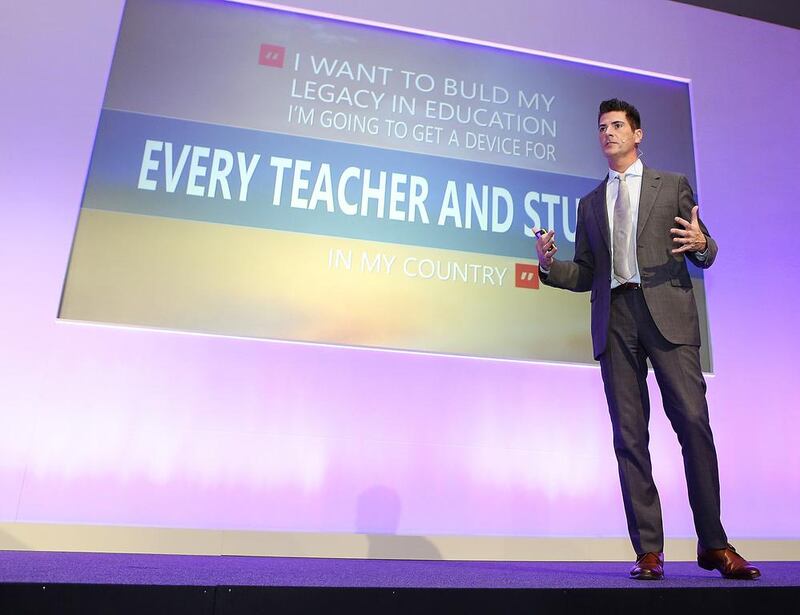DUBAI // A new curriculum with greater emphasis on teaching technology and 21st-century skills will be rolled out to the country’s public schools in the 2018-2019 academic year.
The Ministry of Education undersecretary Marwan Al Sawaleh revealed the Government’s plans to rework the curriculum for all public school children from kindergarten to Grade 12 on the sidelines of the Microsoft in Education Global Forum, which began on Sunday.
“We are rewriting all our curriculums – everything’s 21st century, innovation,” said Mr Al Sawaleh. “By 2018-2019, almost all of our curriculum will be changed – the curriculum, textbooks, digital books – everything. The innovation and entrepreneurship, this will be part of those changes.”
Mr Al Sawaleh said the ministry was also following through on its strategy to introduce computers and tablets in all schools.
He said there were also plans in the works to launch innovation labs, although he did not offer details of how these would operate. Teachers and principals will be offered special training and a professional development programme focused on teaching innovation, he said.
The undersecretary’s comments were made shortly after he spoke to about 500 corporate and education leaders at the two-day forum, which focuses on promoting technology in schools to foster employment skills among today’s youth.
“Mr Al Sawaleh said the ministry had ambitious plans, based on “comprehensve and integrated development” of the education process that would allow “our schools to be the best incubators for creativity to all our talents and innovators”.
“The ministry is keen to keep up with the pace of sustainable development, and community knowledge-based economy, which has become characteristic of our government, as we realise the importance of technology in the student’s life and his future.”
The ministry is already behind the Mohammed bin Rashid Smart Learning Programme, which aims to “shape a new learning environment and culture” in government schools in Dubai and the Northern Emirates by equipping every student with a tablet computer and installing Smart Boards and high-speed broadband in every classroom by 2019.
The Smart Learning Programme was heralded at the forum as one of the successes of technology in education.
Other examples shown in a video presentation included two classrooms of geography students who played a guessing game through Skype to try to find out the location of each other’s classrooms.
“Since technology arrived 20 years ago in classrooms around the world, it has done one thing for sure, you can question a lot of things, but one of the things is that it excited students, it excited students to pursue a learning journey and expand their reality,” said Anthony Salcito, Microsoft’s vice-president, Worldwide Education.
He emphasised the need to raise awareness of the need for holistic change in education, “to really shift the dialogue and discussion around technology’s role as a catalyst for broad transformation” as opposed to a mere simple access to digital content and “a learning environment of the past”.
Alan Marshall, senior vice president for quality assurance and standards at Gems Education, the country’s largest school operator, said pupils needed more than academic qualifications to land a good job or get into a good university.
“Universities and employers are looking for those 21st-century skills that demonstrate rounded individuals,” he said.
rpennington@thenational.ae






